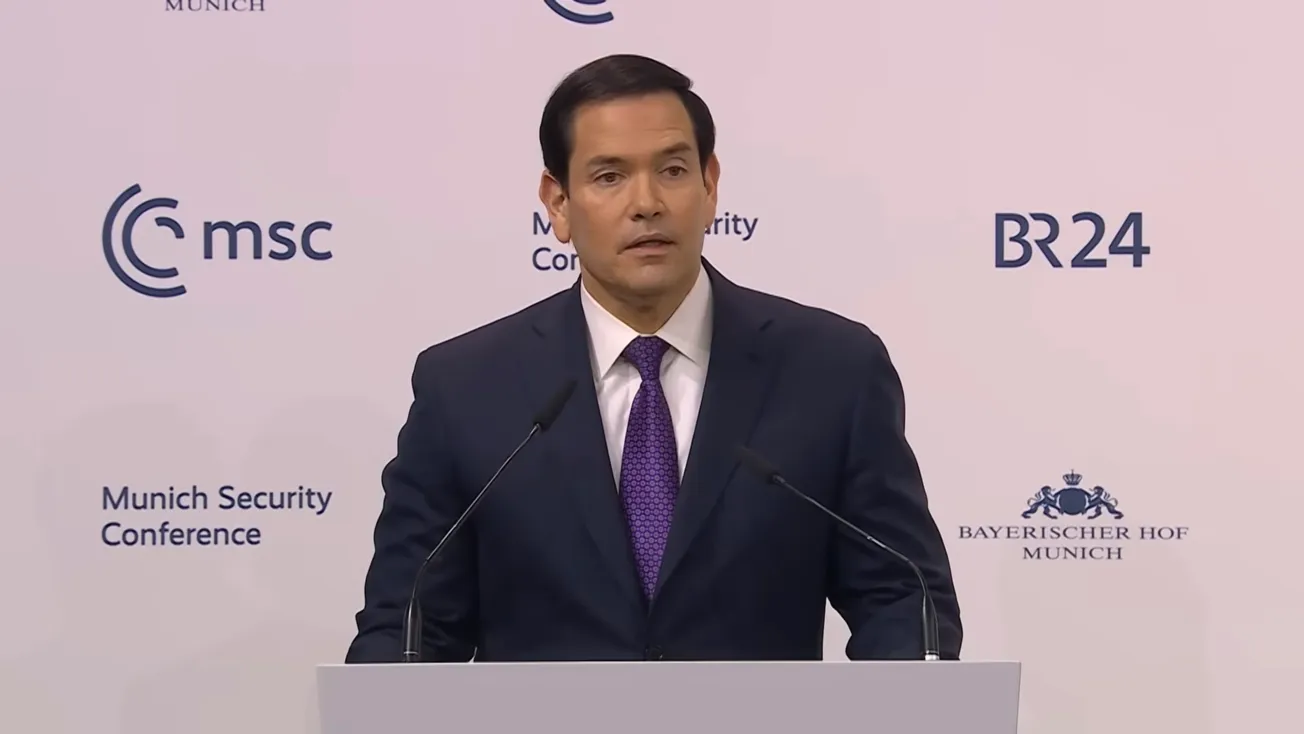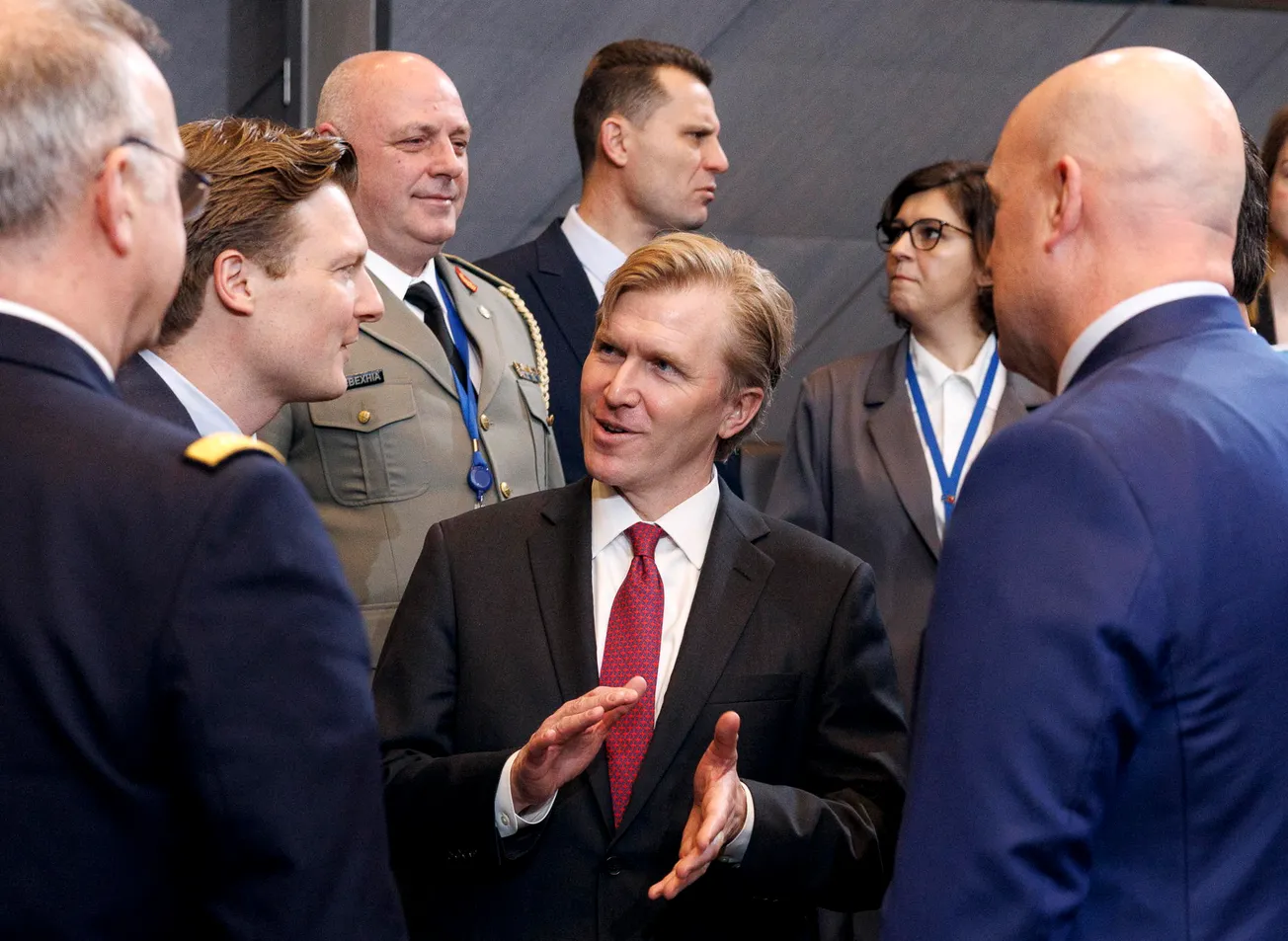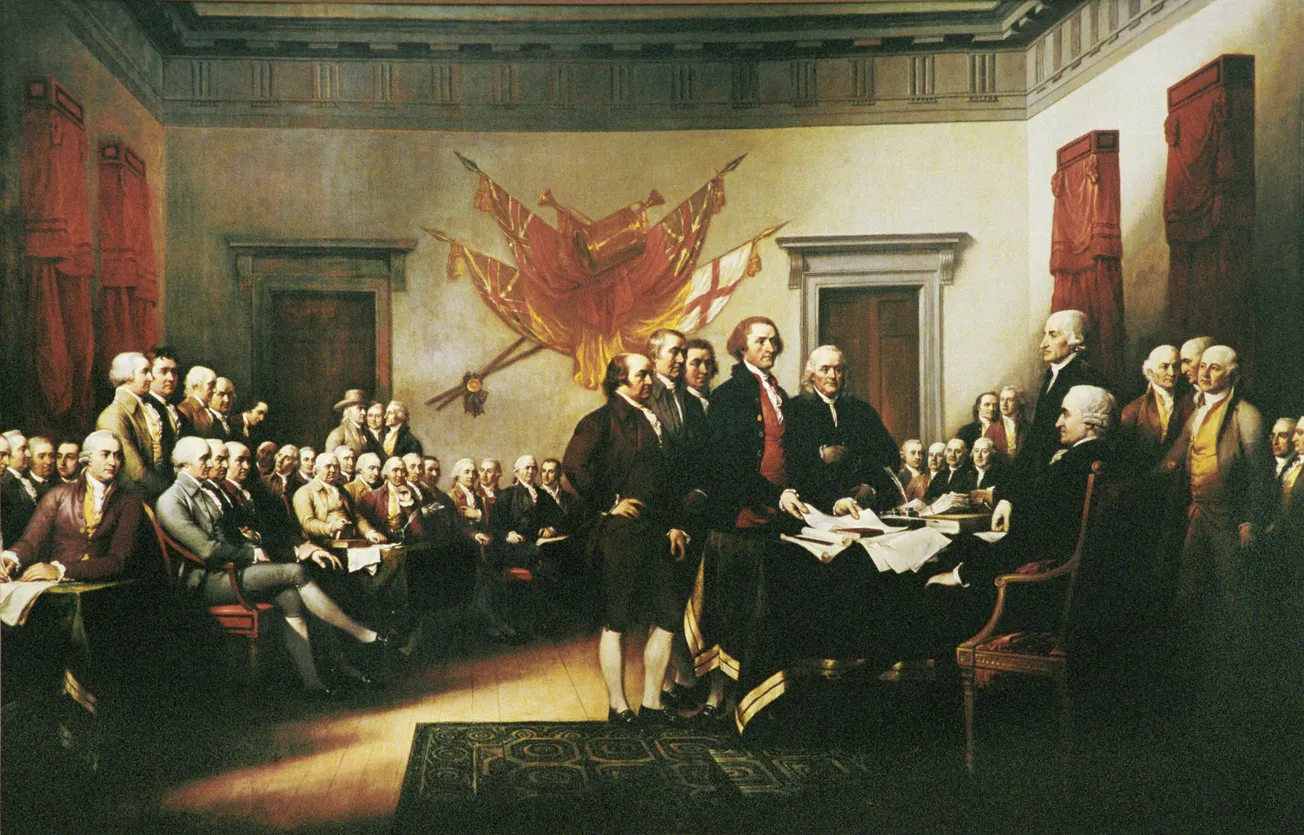The Lead
‘Justice Is Inevitable’: A Revolutionary Moment at the UN
by Dennis Speed (EIRNS) — Apr. 20, 2024
April 19, 2024 (EIRNS)—April 19, 1775 marks for many the “official beginning” of the American Revolution: the battle of Lexington-Concord—“the shot heard ‘round the world.” On April 18, 249 years later, a “vote heard around the world” was taken in the Security Council of the United Nations. Algeria, France, Slovenia, Malta, Guyana, Ecuador, Sierra Leone, Mozambique, Japan, the Republic of Korea, Russia and China took action to recognize Palestine as a state member of the United Nations. This was a vote heard around the world, on behalf of human freedom, justice and equality. There were two equivocators, the United Kingdom and Switzerland, that abstained. Only the United States, in a vote which will live in infamy, opposed Palestine’s membership. Because it is a permanent member of the Security Council, that one vote by the U.S. stopped the resolution from going through.
That is not, however, the end of the story. International law attorney Francis Boyle, queried at an earlier International Peace Coalition meeting about what recourse United Nations members might have, in the face of some permanent member of the UN Security Council continually vetoing resolutions, recalled that the United States, during the Korean War, had itself introduced a measure to circumvent that practice on the part of the Soviet Union. As a result, the UN on November 3, 1950 adopted General Assembly resolution 377, the “Uniting For Peace” resolution. That measure “resolves that if the Security Council, because of lack of unanimity of the permanent members, fails to exercise its primary responsibility for the maintenance of international peace and security in any case where there appears to be a threat to the peace, breach of the peace, or active aggression, the General Assembly shall consider the matter immediately with the view to making appropriate recommendations to members for collective measures, including, in the case of a breach of the peace or active aggression, the use of armed force if necessary, to maintain or restore, international peace and security.”
Only the United States—or rather, the military-financial complex that has taken over the United States increasingly since the assassination of John F. Kennedy—opposed recognition of Palestine. The twisted explanation that was given by U.S. Deputy Ambassador Robert Wood for the “No” vote, was, in effect, that it was actually because of the U.S. support for a Palestinian state, and two-state solution, that the “No” vote was cast! “We also have long been clear that premature actions here in New York, even with the best intentions, will not achieve statehood for the Palestinian people. As members of the Security Council, we have a special responsibility to ensure that our actions further the cause of international peace and security and are consistent with the requirements of the UN Charter. As reflected in the report of the Admission Committee, there was not unanimity among Committee Members as to whether the applicant met the criteria for membership as set forth in Article 4 of the UN Charter. For example, there are unresolved questions as to whether the applicant meets the criteria to be considered a State.
[Note that 140 nations worldwide already recognize Palestine as a state.] We have long called on the Palestinian Authority to undertake necessary reforms to help establish the attributes of readiness for statehood and note that Hamas—a terrorist organization—is currently exerting power and influence in Gaza, an integral part of the state envisioned in this resolution.” Wood might as well have asserted that “since the current government of Israel has refused to accept that Palestinian state, the United States opposes its recognition.”
And what is the thinking in Israel on this question? On March 25, at a meeting organized by the University of Virginia’s Miller Center of Public Affairs, Nimrod Novik, former senior foreign policy advisor to Nobel Peace Prize laureate and Israeli Prime Minister Shimon Peres, told his audience: “The two-state solution is inevitable. Not because we wish it; not because Palestinians deserve equal rights, which they do—but I’m in this business for Israel, not for anybody else; but because these two people are not going to live happily under the same roof, unless one thing will happen. Either we Israelis will grant all Palestinians equal rights, and become a minority in our own country, which we are not going to do; or Palestinians will forever agree to live deprived of equal rights, which I submit to you, the first Intifada, and the second Intifada, and, God Help us, the third Intifada, are going to prove that that is as unrealistic. “
Helga Zepp-LaRouche, after viewing Novik’s remarks at the conclusion of the 46th meeting of today’s International Peace Coalition, said: “The whole concept of the Oasis Plan is exactly to interrupt forever this cycle of Intifada revenge. The whole point is that if there is no justice in allowing a two-state solution and the full equal rights and right to development for all, then the violence will continue. The only way how you can interrupt it is by going to the Peace of Westphalia approach, which is, if you read the principles they came up with after four years of negotiations, I think the first or second principle was that for the sake of peace, all things committed by one side or the other have to be forgotten or put aside. You cannot forget them, but they have to stop being a factor in what you are doing today.
“While that seems to be very difficult, because after all these horrible things which have been done to people, to then say you have to end it, you have to draw a line and go into a completely different mode—namely one of joint development and mutual benefit—seems to be almost emotionally impossible. But if you think about it, I would urge people to do some deep thinking. Unless you make such a line of saying enough is enough, both sides have committed crimes. We do not count now who committed more crimes, because if you continue to count what one side did, or the other, the war will go on forever. I’m not now putting everything on the same bill of guilt or so, but you have to make this intellectual jump. You have to switch and leave the past behind you and have a beautiful vision of the future, which gives hope to all the participants in the conflict.”
So the fight must now move from the Security Council, into the General Assembly. Seven members of the Security Council are needed for such a move to happen. The Schiller Institute’s United Nations Representative Richard A. Black reported that. Palestine’s Representative Ambassador Riyad Mansour after the vote, talked about the inalienable rights of Gaza, an idea that the United States had just voted against. At one point the ambassador, so moved by emotion, could not continue. “There was dead silence. And the camera shifted to the representative from Malta, who at that point wiped a tear from her eye. And he then continued, and he said, ‘Justice for Palestine is inevitable.’” Those are words that are today being heard around the world, as powerful in their own way as was that shot, and that moment in Lexington-Concord 249 years ago.
Contents
Strategic War Danger
- UN Debate Hears Demands for Justice for Palestine, Anger at U.S. (↓)
- Netanyahu Fears Being Indicted by the International Criminal Court (↓)
- China Prepares for Information Warfare in Creating New Defense Branch (↓)
- U.S. Air Force Runs Two Nuclear War Exercises in the Space of One Week (↓)
- CIA Director Says Ukraine Could Lose the War to Russia If Congress Does Not Pass $60 Billion Aid Package (↓)
- Vatican News Chief Editor Calls People To Take Responsibility and Mobilize in the Face of War Escalation (↓)
Strategic War Danger
- U.S.-Israel Discussions Fail To Resolve Israeli Plans for Rafah Assault (↓)
- G7 Foreign Ministers Meeting at the Island of Tiberius to Discuss Geopolitics (↓)
Collapsing Imperial System
- Popular German Economist Hellmeyer Considers the Crash Will Not Be Linear (↓)
- A ‘Large Selloff’ Threatens Treasury Market, Says Vanguard (↓)







